Ten requirements for re-imagining public health training in emergencies
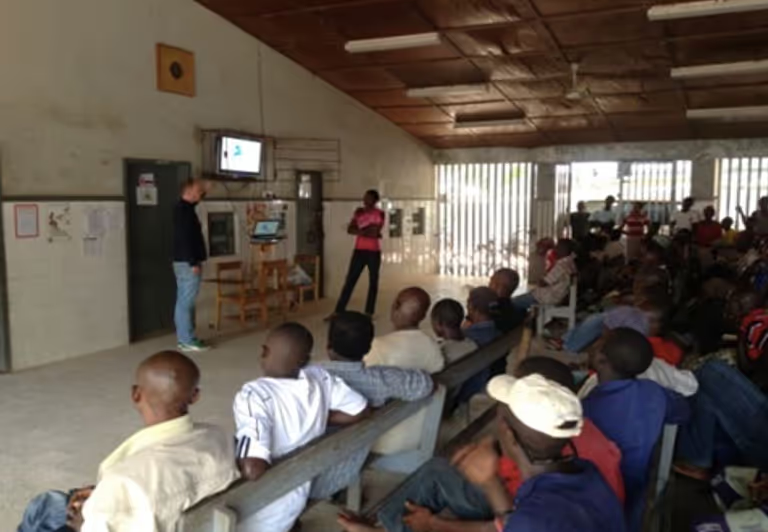
The customary reliance on the physical presence of expert trainers and traditional teaching techniques based on lectures and Powerpoint presentations are of variable quality, often difficult to scale and have their own risks such as bringing people together in the midst of an outbreak.
;
Further challenges include:
- The distributed nature of workforces and populations at risk;
- The scarcity of international experts with practical experience of successfully containing such epidemics;
- Potential restrictions on local and international travel
- The need to ensure education and training is context- and culture-specific;
- The importance of tracking metrics effectively to ensure quality
- Mistrust of outsiders or in some situations, central government interventions
- Need to constantly update training as new insights are gained, or policy guidelines created.
These challenges all came to the fore during the Ebola crisis in West Africa, and remain challenges for any new outbreak or threat from an emergent pathogen. But there is some good news. Digital infrastructures enable innovative methods of delivery which entail new skills and approaches, and these have been tried and tested in other sectors from aviation to the oil and gas industry.
Some of their most important benefits of digital training include:
- Deployment of education and training in a sustainably distributed manner and exponential scale
- A blended approach, relying less on formal training facilities and more on integration with the work environment reducing the need for courses that involve inefficiencies of travel or poor delivery;
- Greater engagement of the learner, recognising constraints in terms of time, concentration and motivation, building on new pedagogic models using simulation, and game based problem solving.
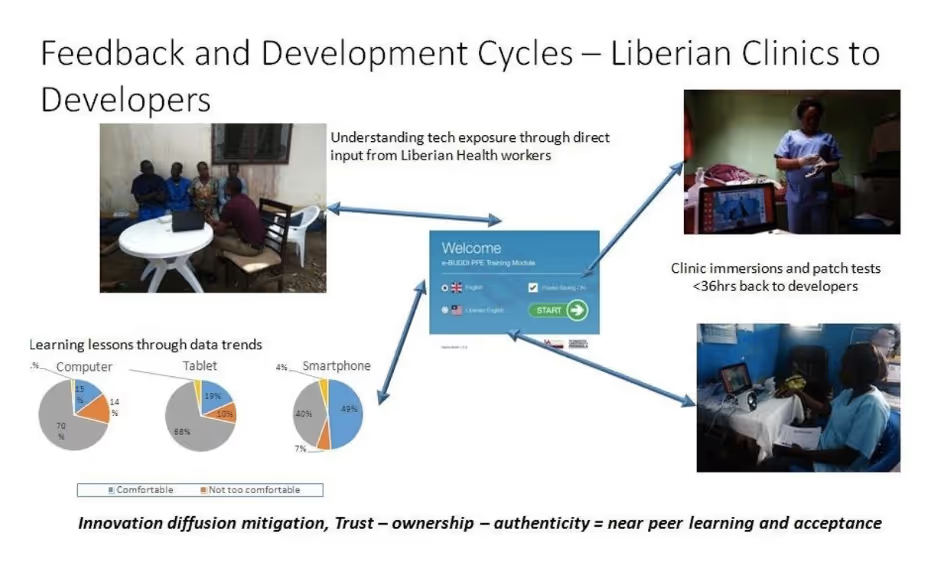
In this project we are seeking to be a catalyst for a pedagogic revolution in local capacity building, breaking away from the traditional INGO model of depending on large numbers of international experts; and we wanted to show how that could happen, addressing a universal issue directly affecting the security of communities, and patient safety - infection, prevention and control and we sought to do that through innovative educational technology using distributed simulation, improving knowledge retention, confidence and ultimately competence using the latest technologies that can knowledge could be shared globally on a greater scale, quality and adaptability than has hereto been possible.
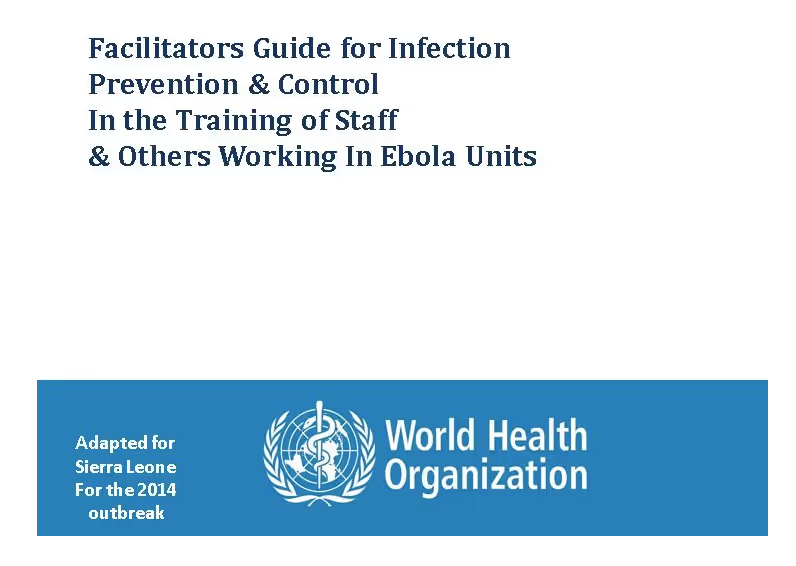
Reviewing the experience in the field as well as the consultations we have come up with a list of ten key requirements for adapting simulation training to the humanitarian and particularly the public health field.
- High fidelity - absolutely aligned with the public health guidelines be it the National MoH, WHO or CDC policy
- Accessible to all – literacy and language not a barrier, as well as intuitive and engaging
- Scalable and easily shared
- Updatable allowing improvements in medical practice to be immediately adopted
- Near peer and not didactic – guided by the trainee
- Context and culturally appropriate recognising that the differences between what is taught and local circumstances undermines confidence in the approach and at worst can lead to confusion
- High impact – multimodal, building on neuroscience insights into how people learn
- Scope for team based learning (Buddy and / or Team)
- Self-paced and flexible to fit in with work schedules – as well as scope to personalised to individual learning styles
- Automatic monitoring and evaluation at the level of learner and the programme manager that can be shared with sponsoring agencies / donors
Top image: The opportunity to shift training from the 'sage on the stage' to the 'digital guide by your side'
Stay updated
Sign up for our newsletter to receive regular updates on resources, news, and insights like this. Don’t miss out on important information that can help you stay informed and engaged.
Related articles
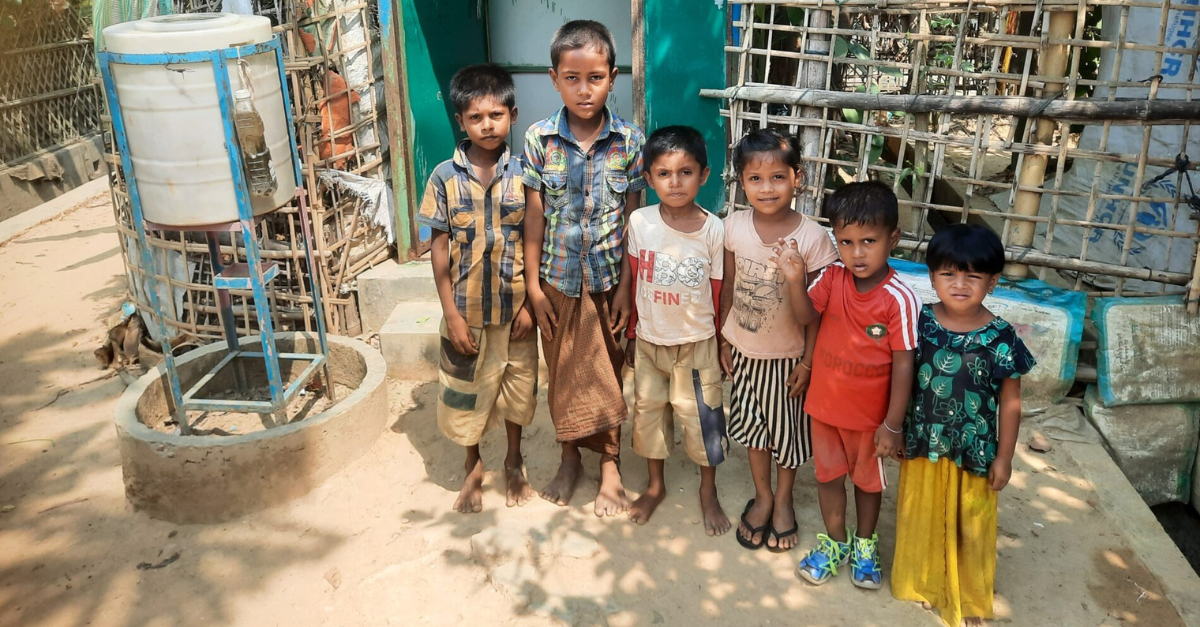
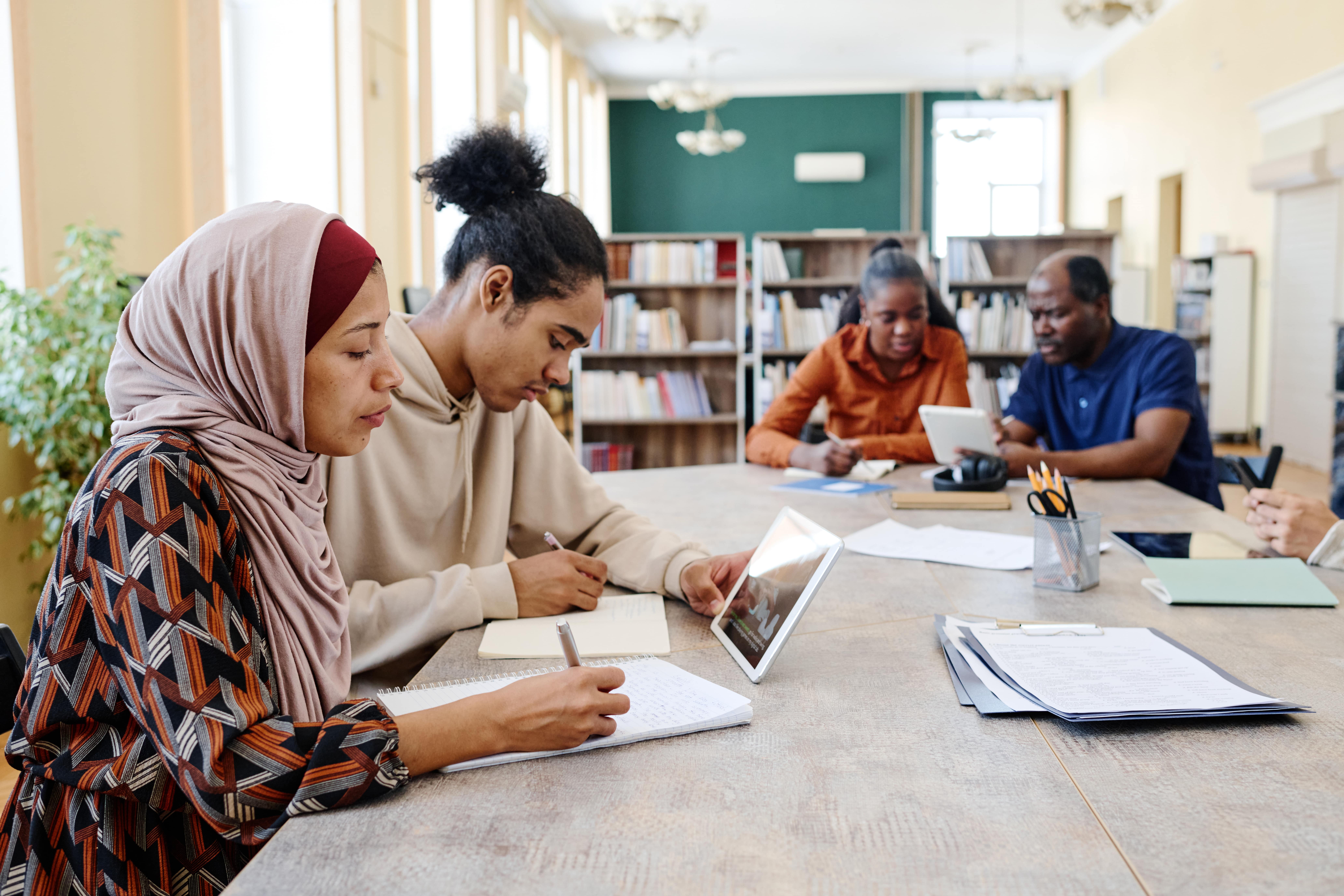

Explore Elrha
Learn more about our mission, the organisations we support, and the resources we provide to drive research and innovation in humanitarian response.